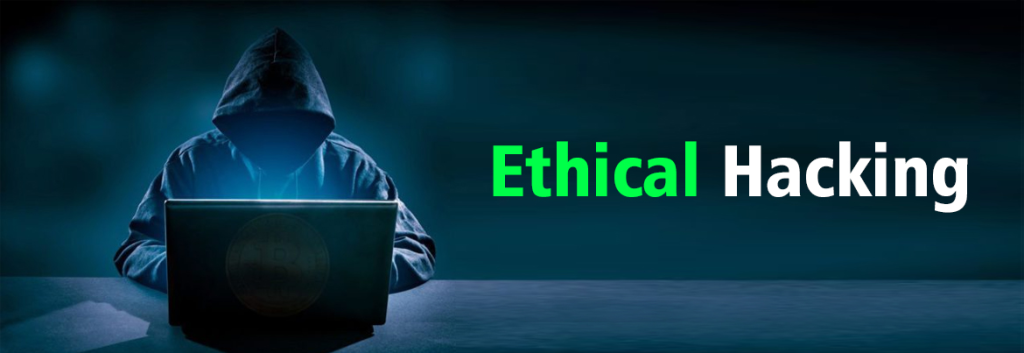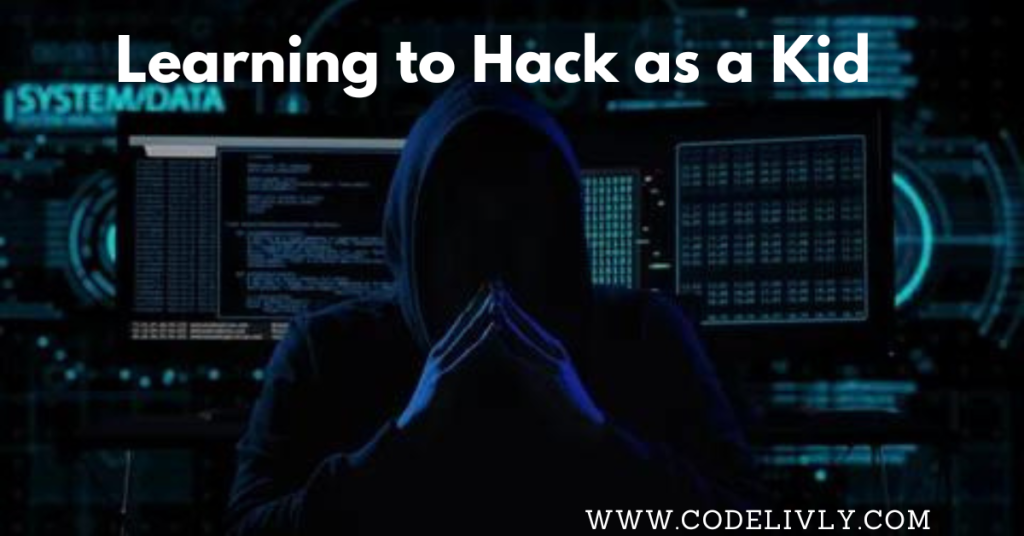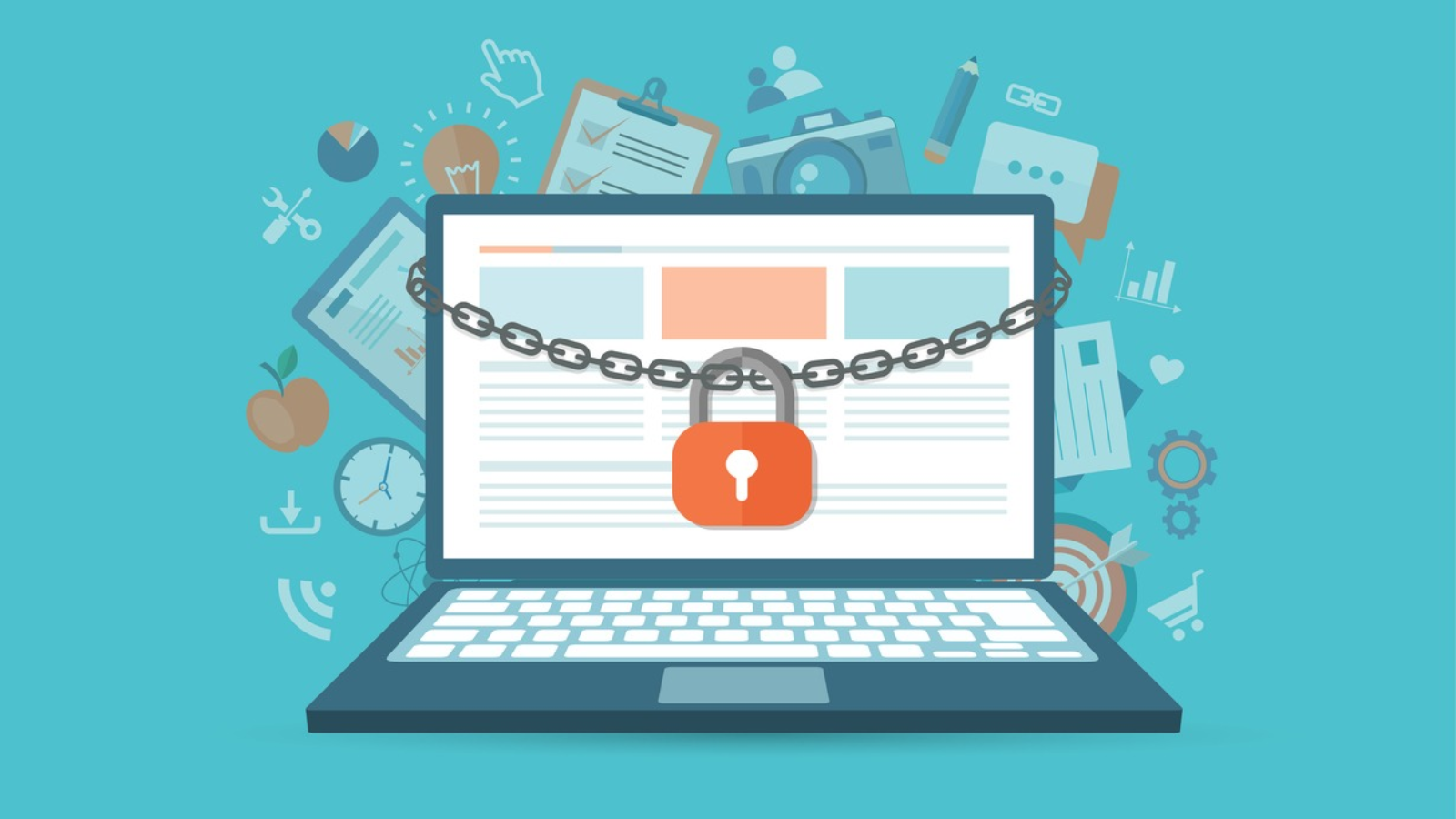Hey there, young explorer! Have you ever wondered about the world of hacking and cybersecurity? Well, get ready to embark on an exciting adventure as we dive into the fascinating realm of ethical hacking! Ethical hacking is all about using your skills and knowledge to protect computer systems and networks from bad hackers who try to break into them. In this article, we will explore what ethical hacking is all about, how you can learn and develop your skills, and the importance of being responsible and ethical in your hacking adventures. So, put on your virtual hacker hat, and let’s begin this thrilling journey into the world of ethical hacking!
Understanding Ethical Hacking
Ethical hacking, also known as white-hat hacking or penetration testing, involves employing hacking techniques to identify vulnerabilities and weaknesses in computer systems, networks, or applications. The primary objective of ethical hacking is to help improve the security of these systems by finding and fixing potential issues before malicious hackers can exploit them.
In the world of ethical hacking, you become a digital detective, using your computer skills to investigate and uncover vulnerabilities. You analyze computer networks and systems to identify potential weaknesses that could be exploited by hackers. By doing so, you play a crucial role in strengthening the security of these systems, preventing cyber-attacks, and safeguarding sensitive information.
Learning ethical hacking provides you with valuable knowledge and skills. You will gain an understanding of how computer networks function, how data flows between different devices, and the various components that make up a secure system. Additionally, you will learn programming and coding languages, such as Python or JavaScript, which are essential tools for ethical hacking.
As an ethical hacker, you will utilize specialized tools and techniques to uncover vulnerabilities. These tools can include network scanners, vulnerability scanners, and exploit frameworks. Network scanners help you identify devices connected to a network and discover open ports or services that could be potential entry points for attackers. Vulnerability scanners scan systems for known vulnerabilities, helping you pinpoint weaknesses that need to be addressed. Exploit frameworks contain pre-written code or scripts that can be used to exploit vulnerabilities and demonstrate their impact.
It is important to understand that ethical hacking differs from malicious hacking. Ethical hackers always operate within legal boundaries and with the permission of the system owners. They follow strict ethical guidelines and do not engage in any illegal activities or cause harm. Their objective is to assist in securing systems and protecting against cyber threats, rather than exploiting vulnerabilities for personal gain.
To become a responsible ethical hacker, it is essential to prioritize ethics and responsibility. Always seek permission and guidance from adults or responsible individuals before conducting any hacking activities. Respect privacy and confidentiality, and never use your skills to harm others or invade someone’s personal space. Additionally, it is crucial to report any vulnerabilities you discover to the system owners so that they can take appropriate measures to address them.
Ethics and Legal Considerations

When it comes to ethical hacking, it is crucial to understand the importance of ethics and legal considerations. As an ethical hacker, I must adhere to a set of guidelines and principles to ensure that my actions are responsible and lawful.
Ethics plays a significant role in ethical hacking. It refers to the moral principles that guide our behavior and decision-making. As an ethical hacker, I am committed to using my skills for positive purposes, with the intention of improving the security of computer systems and networks. I respect the privacy and confidentiality of others and avoid engaging in any activities that could harm individuals or organizations.
Responsible ethical hacking involves obtaining proper permission and consent from the owner of the system or network being tested. Before conducting any hacking activities, I must seek explicit authorization and guidance from adults or responsible individuals who have the authority to grant permission. This ensures that my actions are legal and within the bounds of the law.
Understanding the legal boundaries is crucial for ethical hacking. Laws and regulations differ from country to country, and it is important to be aware of the legal frameworks governing hacking activities. I must comply with all applicable laws and regulations to avoid legal consequences. Engaging in unauthorized hacking, breaching systems without permission, or causing harm to others can lead to severe legal penalties.
In some cases, ethical hackers work as part of an organization or a team, where they follow strict rules and procedures. These organizations have policies and guidelines in place to ensure that hacking activities are conducted within legal boundaries and in a responsible manner. It is important to familiarize oneself with these policies and adhere to them.
Moreover, responsible ethical hackers understand the importance of disclosure. If I discover a vulnerability or weakness in a system, it is my responsibility to report it to the system owner or the appropriate authority. This allows them to take necessary actions to fix the vulnerability and prevent potential attacks. Many organizations have established responsible disclosure policies that provide guidelines on how vulnerabilities should be reported and addressed.
By following ethical guidelines and adhering to the law, ethical hackers contribute positively to the cybersecurity landscape. They play a critical role in helping organizations identify and fix vulnerabilities, ultimately enhancing the security of computer systems and networks. Responsible ethical hacking is not only about technical skills but also about having integrity, acting in an ethical manner, and respecting legal boundaries.
As a young learner interested in ethical hacking, it is important to always prioritize ethics and legality in your actions. Seek guidance from adults or responsible individuals, stay informed about the laws and regulations in your country, and act responsibly when conducting hacking activities. By doing so, you can ensure that your actions are aligned with ethical standards and legal requirements, making a positive impact in the field of cybersecurity.
Building a Strong Foundation

As a young learner interested in ethical hacking, it is essential to establish a strong foundation in order to develop your skills effectively. Building this foundation involves gaining knowledge and understanding in several key areas that form the basis of ethical hacking.
One important aspect is learning about computer networks and systems. Understanding how computers communicate with each other, how data is transmitted, and how networks are structured is fundamental in ethical hacking. I need to familiarize myself with concepts such as IP addresses, routers, switches, and protocols like TCP/IP. This knowledge will provide a solid understanding of how information flows across networks, which is crucial when identifying potential vulnerabilities.
Another important area to focus on is coding and scripting. Programming languages like Python, JavaScript, and C/C++ are widely used in ethical hacking. By learning coding, I can develop my own tools and scripts to automate tasks and carry out specific hacking techniques. It is important to practice coding regularly and gain proficiency in at least one programming language.
Familiarity with operating systems is also vital. Ethical hackers work with various operating systems like Windows, Linux, and macOS. I need to understand their structures, file systems, and administrative functionalities. This knowledge will enable me to exploit vulnerabilities specific to each operating system and navigate through their interfaces effectively.
Additionally, ethical hackers need to be equipped with essential tools used in the field. Tools like Nmap for network scanning, Wireshark for analyzing network traffic, and Metasploit for exploiting vulnerabilities are commonly employed by ethical hackers. I should explore and become familiar with these tools, understanding their functionalities and how to use them effectively.
To build a strong foundation, I can take advantage of online resources and platforms designed to teach ethical hacking. Online courses and tutorials specifically tailored for young learners provide step-by-step guidance and hands-on practice. I can also participate in Capture the Flag (CTF) challenges, which are cybersecurity competitions where I solve puzzles and challenges related to ethical hacking. These activities help me apply my knowledge and enhance my problem-solving skills.
Being part of ethical hacking communities and forums allows me to connect with other enthusiasts and professionals in the field. These platforms provide opportunities to learn from experienced individuals, share knowledge, and stay updated with the latest trends and techniques in ethical hacking. I can also consider seeking mentorship or joining apprenticeship programs to receive guidance and support from experts.
By focusing on these foundational areas, I can establish a solid base for my journey in ethical hacking. Remember, it is important to always approach ethical hacking responsibly and ethically, seeking guidance from adults or responsible individuals. With dedication, continuous learning, and the right foundation, I can develop my skills and make a positive impact in the field of cybersecurity.
Exploring Common Hacking Techniques
In the world of ethical hacking, understanding common hacking techniques is essential for enhancing your skills and knowledge. As I continue to learn and explore ethical hacking, I will encounter various techniques that hackers employ to identify and exploit vulnerabilities. It is important to be familiar with these techniques in order to strengthen the security of computer systems and networks.
One common hacking technique is social engineering. Social engineering involves manipulating individuals to gain unauthorized access to sensitive information or systems. It relies on psychological tactics rather than technical exploits. As an ethical hacker, I must understand the different social engineering methods used by hackers, such as phishing, pretexting, or impersonation. By studying and recognizing these techniques, I can educate others and help prevent them from falling victim to social engineering attacks.
Network scanning and enumeration are also vital techniques in ethical hacking. Network scanning involves actively seeking out devices connected to a network and identifying potential entry points. Enumeration focuses on gathering information about those devices, such as open ports, services running on them, or user accounts. By performing thorough network scans and enumeration, I can identify weaknesses in a system’s defenses and understand how an attacker might exploit them.
Vulnerability assessment and exploitation form another critical aspect of ethical hacking. Vulnerability assessment involves identifying weaknesses or vulnerabilities in a system, application, or network. By using specialized tools, I can scan for known vulnerabilities and assess their severity. Exploitation refers to the act of taking advantage of these vulnerabilities to gain unauthorized access or control over a system. Ethical hackers may use exploit frameworks or develop custom scripts to exploit vulnerabilities in a controlled manner, ultimately helping organizations patch those vulnerabilities and enhance their security.
Web application security testing is an important focus area in ethical hacking. With the increasing reliance on web-based applications, hackers often target vulnerabilities in web applications to gain access to sensitive information or compromise systems. As an ethical hacker, I need to understand common web application vulnerabilities such as SQL injection, cross-site scripting (XSS), or insecure direct object references. By testing and identifying these vulnerabilities, I can assist organizations in securing their web applications and protecting user data.
Wireless network security is another aspect of hacking techniques to explore. As wireless networks become more prevalent, securing them is crucial. Ethical hackers employ techniques such as wireless sniffing, rogue access point detection, or brute-forcing encryption keys to identify vulnerabilities in wireless networks. By understanding these techniques, I can help organizations strengthen their wireless network security and prevent unauthorized access.
As I delve deeper into ethical hacking, it is important to remember that I must always act responsibly, within legal boundaries, and with permission from system owners. By exploring and understanding these common hacking techniques, I can play a vital role in improving the security of computer systems and networks. Ethical hacking is not about using these techniques for malicious purposes, but rather using them responsibly to identify and address vulnerabilities, ultimately contributing to a safer digital world.
Learning Resources and Platforms
As a young learner interested in ethical hacking, there are several resources and platforms available to help you develop your skills and knowledge in a structured and effective manner. These resources can provide valuable guidance, tutorials, and hands-on practice to support your learning journey.
Online courses and tutorials specifically designed for ethical hacking offer step-by-step guidance and in-depth explanations of various hacking techniques. Platforms like Udemy, Coursera, or Cybrary provide a wide range of courses taught by experienced professionals. These courses cover topics such as network scanning, web application security, cryptography, and more. They often include practical exercises and quizzes to reinforce your understanding.
Capture the Flag (CTF) challenges are interactive cybersecurity competitions that offer a practical and engaging learning experience. CTF challenges allow you to solve puzzles, tackle real-world scenarios, and apply your ethical hacking skills in a simulated environment. Platforms like Hack The Box, TryHackMe, and CTFtime host a variety of CTF challenges for beginners and advanced learners alike. Participating in CTF challenges not only helps you develop your technical skills but also enhances your problem-solving abilities.
Ethical hacking communities and forums provide a platform for connecting with other enthusiasts and professionals in the field. Platforms like Reddit, Stack Exchange, and HackerOne Community offer spaces where you can ask questions, seek advice, and share knowledge with like-minded individuals. Engaging with these communities can provide valuable insights, tips, and resources to support your learning journey.
Open-source tools and frameworks are freely available resources that can aid your ethical hacking endeavors. Tools such as Nmap, Wireshark, Metasploit, and Burp Suite are widely used in the field of ethical hacking and can assist you in network scanning, vulnerability assessment, and exploitation. Exploring and familiarizing yourself with these tools will enhance your understanding of their functionalities and improve your efficiency as an ethical hacker.
Books and online publications focused on ethical hacking can be valuable resources for self-study. Authors like Peter Kim, Georgia Weidman, and Kevin Mitnick have written books covering various aspects of ethical hacking, providing in-depth explanations, case studies, and practical examples. Online platforms like OWASP (Open Web Application Security Project) offer comprehensive guides and documentation on web application security.
Lastly, mentorship and apprenticeship programs provide opportunities to learn from experienced professionals in the field. Finding a mentor who can guide you, answer your questions, and provide feedback on your progress can greatly accelerate your learning. Some organizations and cybersecurity companies offer apprenticeship programs or internships where you can gain practical experience and learn under the guidance of experts.
Remember, while exploring these resources and platforms, always prioritize ethical and responsible hacking practices. Seek guidance from adults or responsible individuals, adhere to legal boundaries, and maintain integrity in your actions. By leveraging these learning resources and platforms effectively, you can build a strong foundation and continually enhance your skills as an ethical hacker, contributing to a safer and more secure digital world.
Nurturing Responsible Hacking Skills
As a young learner interested in ethical hacking, it is important to cultivate responsible hacking skills. Responsible hacking involves using your skills and knowledge for positive purposes, adhering to ethical guidelines, and prioritizing the safety and security of computer systems and networks.
First and foremost, ethical hacking always requires obtaining proper permission and consent. Before engaging in any hacking activities, I must seek explicit authorization from the owner of the system or network being tested. This ensures that my actions are legal and within the bounds of the law. Seeking permission from adults or responsible individuals who have the authority to grant consent is crucial to avoid any legal consequences.
Responsible hackers prioritize ethics and integrity in their actions. It is essential to respect privacy and confidentiality. I should never invade someone’s personal space or gain unauthorized access to sensitive information. As an ethical hacker, I must understand the boundaries of what is considered ethical and lawful. Using my skills for malicious purposes, causing harm, or engaging in any illegal activities is strictly prohibited.
Another crucial aspect of responsible hacking is responsible disclosure. If I discover a vulnerability or weakness in a system, it is my responsibility to report it to the system owner or the appropriate authority. This allows them to take the necessary actions to fix the vulnerability and prevent potential attacks. Many organizations have established responsible disclosure policies that provide guidelines on how vulnerabilities should be reported and addressed.
Continual learning and staying up-to-date with the latest trends and techniques in ethical hacking are essential for nurturing responsible hacking skills. The field of cybersecurity is constantly evolving, and it is important to keep pace with new threats, vulnerabilities, and defensive strategies. Engaging in online communities, forums, and attending cybersecurity conferences or workshops can provide valuable opportunities to learn from experienced professionals and expand my knowledge.
Practicing responsible hacking also involves maintaining a strong code of ethics. It means acting with integrity, respecting the rights and privacy of others, and using my skills to protect rather than harm. Responsible hackers understand the potential impact of their actions and strive to make a positive difference in the field of cybersecurity.
Lastly, mentorship and guidance from experienced professionals play a crucial role in nurturing responsible hacking skills. Seeking a mentor who can provide guidance, share their knowledge, and provide feedback on my progress is invaluable. Learning from their experiences and insights can help shape my ethical hacking journey and instill responsible practices from the beginning.
By nurturing responsible hacking skills, I can make a positive impact in the field of cybersecurity. Ethical hackers play a vital role in identifying vulnerabilities, securing systems, and protecting against cyber threats. It is important to always prioritize ethics, legality, and responsible practices. By approaching ethical hacking with integrity, continuous learning, and a commitment to doing good, I can contribute to a safer digital world and become a respected professional in the field of cybersecurity.
Conclusion
Ethical hacking is an intriguing and important field that offers young learners like you the opportunity to explore the world of cybersecurity responsibly. Throughout this article, we have covered various aspects of ethical hacking, including understanding its foundations, exploring common hacking techniques, nurturing responsible skills, and even highlighting case studies of young ethical hackers who have made a significant impact.
It is crucial to approach ethical hacking with integrity, following legal boundaries and seeking proper authorization before engaging in any hacking activities. Building a strong foundation through learning about computer networks, programming languages, operating systems, and essential tools sets the stage for your growth as an ethical hacker. Exploring common hacking techniques, such as social engineering, network scanning, vulnerability assessment, web application security, and wireless network security, deepens your understanding and equips you with the necessary skills to identify and address vulnerabilities.
As you embark on your ethical hacking journey, remember the importance of responsible hacking. Respect privacy, obtain permission, and adhere to ethical guidelines. Always prioritize responsible disclosure, reporting vulnerabilities to the appropriate authorities or system owners to facilitate their resolution. Continual learning, engagement with ethical hacking communities, and seeking mentorship from experienced professionals will further enhance your skills and knowledge.
As you progress in your ethical hacking journey, remember to stay curious, ethical, and committed to continuous learning. The world of ethical hacking offers endless opportunities for exploration, problem-solving, and innovation. Embrace the challenges, build your skills, and leverage your knowledge to become a respected professional in the field of cybersecurity.
Good luck on your ethical hacking journey, and may you always use your skills for the betterment of cybersecurity and the protection of digital systems and networks.








